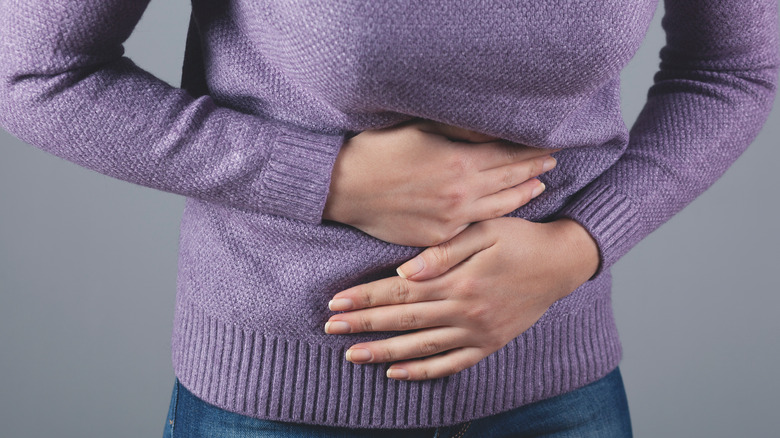Can Magnesium Help With Constipation?
If you've been making regular trips to the bathroom without much actually happening once you get there, you might be constipated, but you're certainly not alone. Around 4 million people in the U.S. suffer from frequent constipation, and many more experience the discomfort on an occasional basis (per Johns Hopkins Medicine). "Constipation happens when bowel movements pass too slowly through the digestive tract, allowing more water to be absorbed and hardening the stool," Dr. Joshua Russell of Legacy-GoHealth Urgent Care told Women's Health.
For help with occasional constipation, many people turn to magnesium supplements for help. Magnesium is a mineral that plays an important role in bone health and cell function, as well as various other vital processes (via Verywell Health). It's been used for decades as a gentle and relatively safe laxative, but studies in recent years have pinpointed exactly how it works. The details of its function may surprise you.
Fiber-rich foods often contain magnesium, too
Magnesium can help relax intestinal muscles, making it easier for stool to move through your body. It also draws water into the intestines, where it mixes with dry stool, making it softer, bulkier, and easier to pass.
While magnesium has been used successfully for decades to treat occasional constipation, health experts warn against using it long-term. Chronic constipation needs to be discussed with your healthcare provider. Using magnesium for extended periods of time can lead to diarrhea, which can cause dehydration and electrolyte imbalance. Consuming too much can also lead to problems with the kidneys, which are responsible for removing excess magnesium from the blood (via Verywell Health).
Magnesium can be taken as a supplement, but it is also found in many healthy, fiber-rich foods. According to Healthline, leafy green vegetables, like spinach and kale, as well as nuts, seeds, whole grains, and legumes, all contain potent amounts of magnesium.
Magnesium may be a lifesaver for occasional constipation, but a healthy diet and lifestyle can go a long way toward preventing constipation in the first place. "You should be sure you are eating a fiber-rich diet, drinking adequate fluids, and staying physically active," gastroenterologist Dr. Jacqueline Wolf told the Harvard Medical School. "You should see your doctor and discuss it if you are constantly needing to take laxatives. People shouldn't have to take laxatives every day."


